I had no choice but to rise early at the Cabane de
Prafleuri; the latest option for breakfast was a 7:00 A.M. and they wanted
everyone out for cleaning by 7:30. So I was on the trail by 7:30 A.M., my
earliest start so far.
But that was a good thing, since the impression I was under
that this would be a relatively easy day was mistaken. The scenery was again
stunningly beautiful, but I certainly had to work long and hard for it again.
The initial climb from Cabane de Prafleuri to pass at Col
des Roux was only about 180 meters, fairly steep but not treacherous, just
enough to get your heart really pounding and wake you up in the morning. At the
top there was one of those knock-your-socks-off views into the next valley,
another one of those situations where you get your first glimpse of what lies
ahead in completely new landscape from the valley you’ve just been toiling
through.
The Val des Dix is considered one of the most beautiful in
the Valais Alps, despite the fact that the large aquamarine-colored lake that
fills a large part of it is a manmade reservoir.
The unusual greenish color
comes from the suspended glacial silt. Although I didn’t actually see the dam,
the Barrage de Grand Dixence is said to be the world’s tallest at 284 meters.
Apparently Switzerland is able to produce a large portion of its electricity
needs through hydro-power having such enormous vertical relief and ample
precipitation.
The long, winding trail down was a beautiful walk in the
morning light. That was followed by a few miles on a nearly level dirt road
above the reservoir’s shore. All good things must come to an end, though. I ate
my packed lunch along the lakeshore just before the trail ascended steeply. My
(dated) guidebook’s description was garbage. I got a little confused because
the old route bore little resemblance to the new one indicated by the signs,
but a group of four Irish men with more detailed current maps set me straight.
The trail rose steeply and spectacularly to one lateral moraine of the
retreated glacier, then dropped into the valley to cross the roaring stream of
the glacier’s outlet before rising again onto the other lateral moraine.
The
views to the Cheilon Glacier and ice-capped Mont Blanc de Cheilon at 3,870
meters (about 12,800 feet) behind it were stunning, but it was also a bleak
Himalaya-like environment of stone and gravel with barely a hint of plant life,
typical of land left bare by retreating glaciers.
I thought I had ascended most of the way to the pass, the Col
de Riedmattan, but the trail then dropped steeply through the boulder field to
the barren glacial valley. I actually had two choices to cross to the next
valley to Arolla but opted for the Riedmattan route, despite it being said to
be the harder of the two. The alternative route, over the nearby Col de Chevres
requires climbing up ladders, and I’m not sure I’m over my fear of heights
enough to tackle that one.
The ascent to the Col de Riedmattan was probably no more than
150 vertical meters (500 feet), but it was the steepest, scariest ascent of the
trek so far, mostly on a scree slope. That’s actually significantly harder than
a boulder field with good handholds. The top part narrowed to a steep gulley,
the ascent of which was made possible for me only by chains bolted to the side
of the cliff onto which I hung on for dear life.
I stopped somewhat short of
the top to catch my breath as a Taiwanese couple was also ascending. The woman
struggled behind me and the man returned to help her after making it to the
top. I’m like, “I’m not letting go of the chain!”
When we all got to the top the Chinese couple noticed my hand
was bleeding a little and seemed overly concerned about my wellbeing. TO me it
was just a little scratch. I’d lick off the blood. But they whipped out they
first aid kit with alcohol wipes and a band-aid for me. It was way overkill,
but I politely accepted their aid.
I was totally exhausted at the top of the 2,919-meter pass
(about 9,700 feet). Luckily, the long way down to Arolla on the other side of
the pass was on a quite decent trail all the way. But I wasn’t quite there yet.
The 900-meter (3,000 foot) vertical descent into Arolla took me well over two
hours. And the fine weather conditions I experienced the first week of the trek
changed to a few sprinkles.
Arolla is a ski town, but not a huge glitzy resort like
Verbier or Zermatt, and much of my descent was on slopes that are ski pistes in
the winter.
It’s a spectacular location below high peaks and glaciers as the
Tsijore Nouve Glacier tumbles down from the Pigne d’Arolla and ice-capped Mont
Collon at 3,637 meters dominates the valley. It apparently had rained harder
over town and a rainbow crossed the valley for a while as I descended.
Arolla is located at 2,000 meters (6,600 feet), just below
where the trees end. As I approached town I saw a few ads for the dortoirs
(dormitory beds) at the Grand Hotel & Kurhaus in Arolla. It turned out to
be the first place I came to on my descent, so I inquired. I discovered that a
private room with shared bath was only 50 francs with breakfast, not much more
than a shared room. Yes, I’m all about that for a night of comfort in my
extremely exhausted condition. My room was a very rustic one in the attic with
a sloping roof and hallway beams so low I had to duck slightly. This was absolutely
perfect. Who says Switzerland has to be astronomically expensive? I had a nice
dinner and a few beers with a few of my new trail friends, including a couple
from Calgary whose son graduated from Duke a few years ago.
Morning dawned gray and swirling crowds. The next leg of my
route is a fairly short and easy one mostly down valley, one that could easily
be undertaken in less than perfect weather conditions, and it wasn’t actually
raining – just mostly cloudy. After a nice spread of a breakfast buffet,
though, I made the decision to take a rest day and spend another night in
Arolla. I did little more in terms activity than wander down the hill into the
town to get a sandwich and a few provisions at the shop, the rest of the day spent
relaxing and recovering. Arolla is officially the halfway point of the Chamonix
to Zermatt Haute Route trek, and I’m not in a hurry, so I can afford a well-needed
break for a day in the relative luxury of the Grand Hotel.

 Arolla, Valais, Switzerland
Arolla, Valais, Switzerland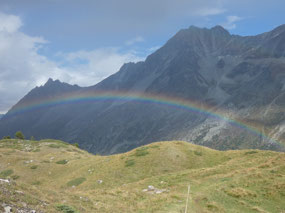
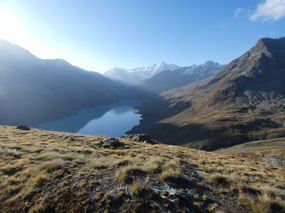
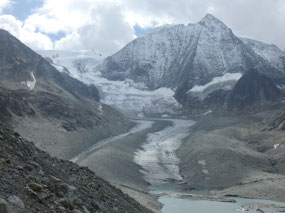
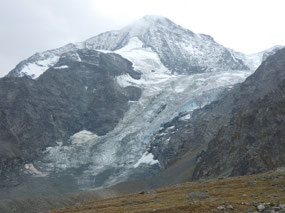
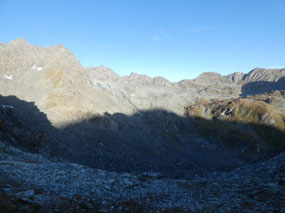
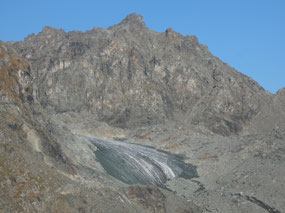



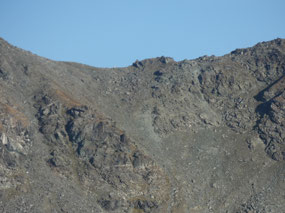
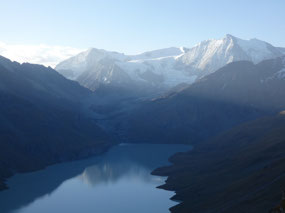
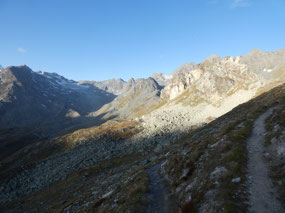

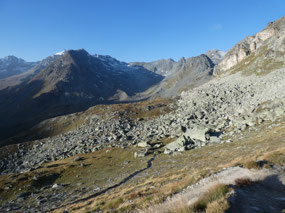
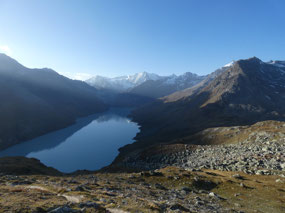
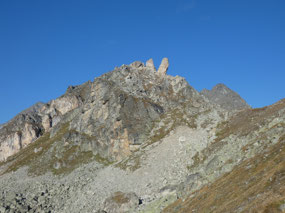
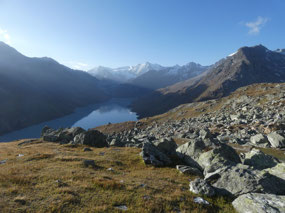
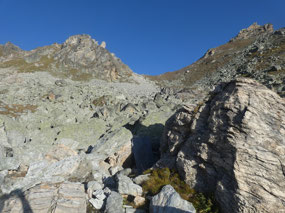
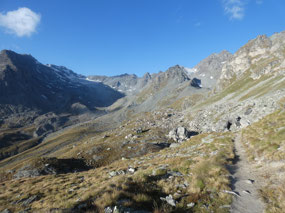
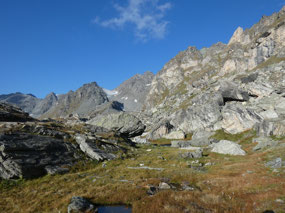
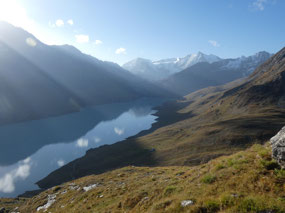
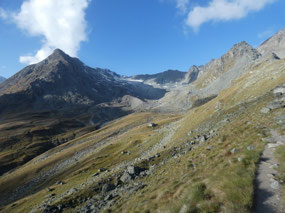
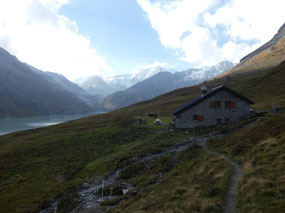
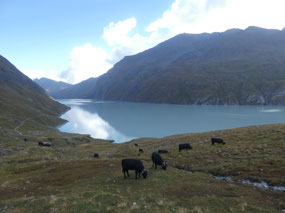
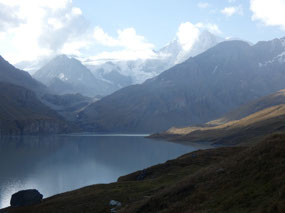
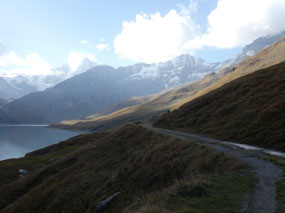
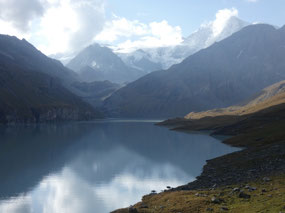
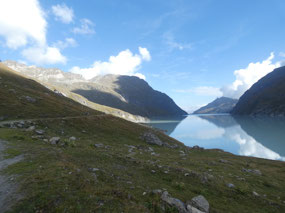
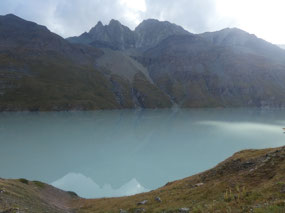
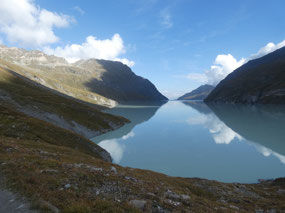
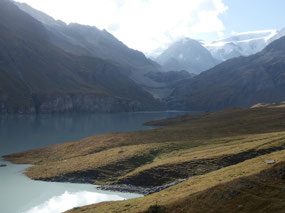
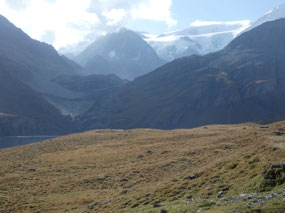
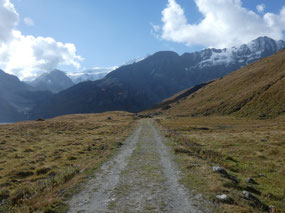
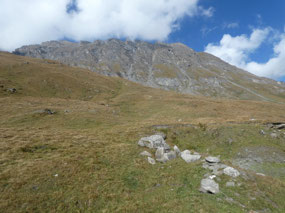
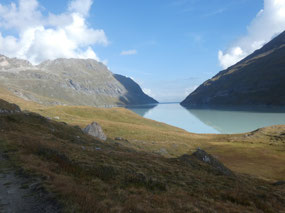
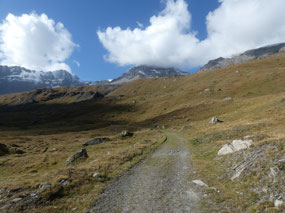
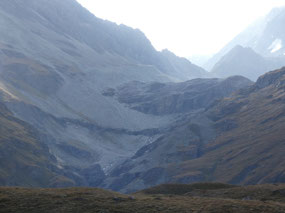
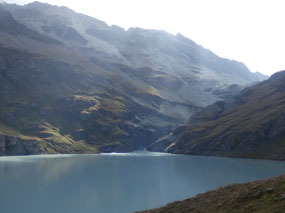
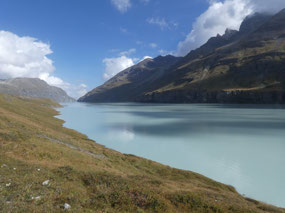
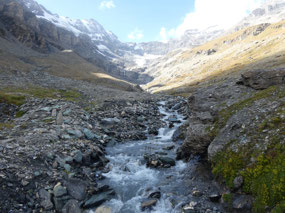
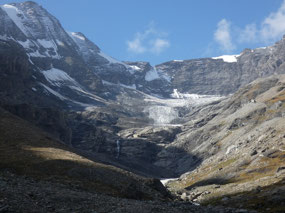
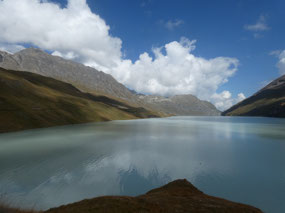
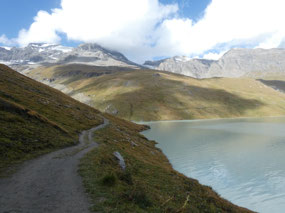
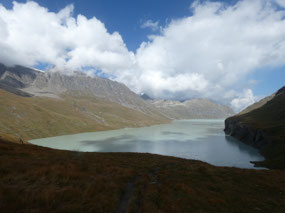
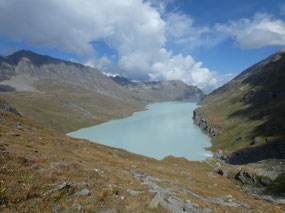
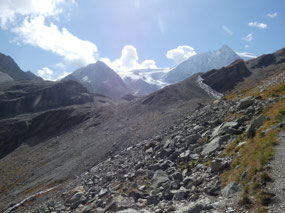
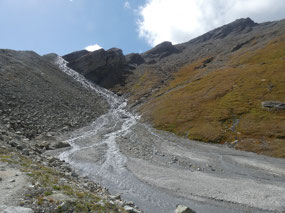
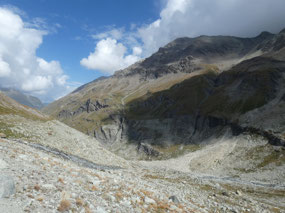
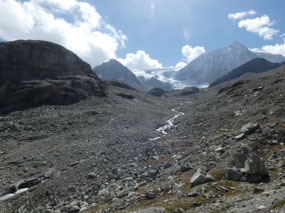
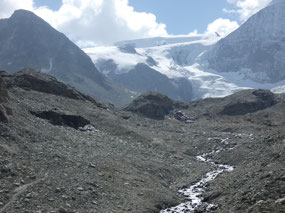
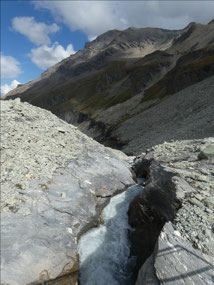
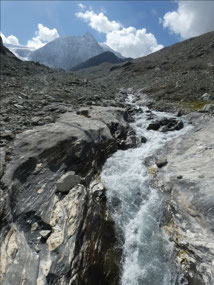
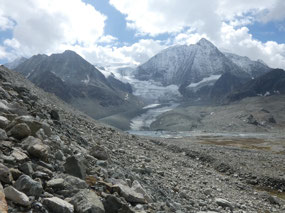
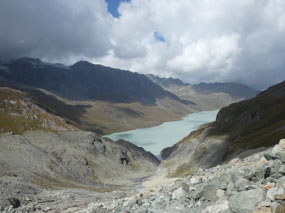
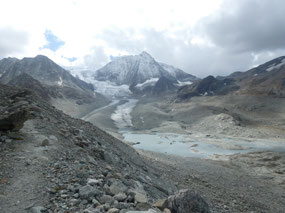

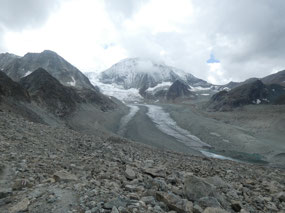
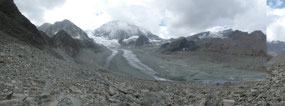
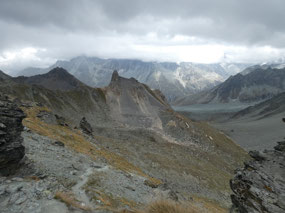
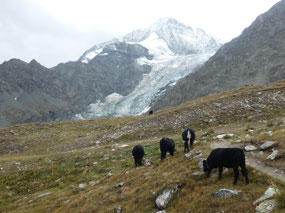
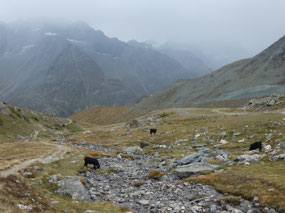
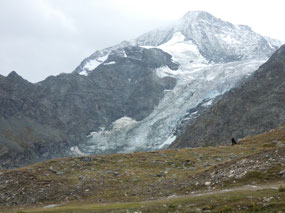
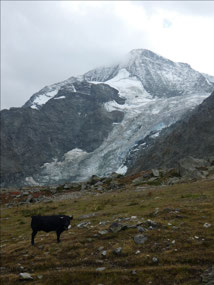
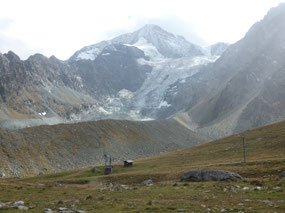
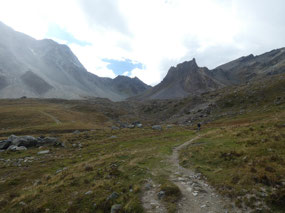
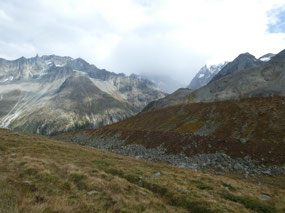
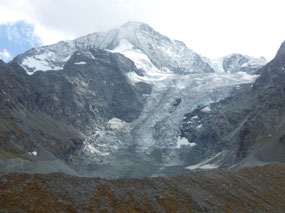

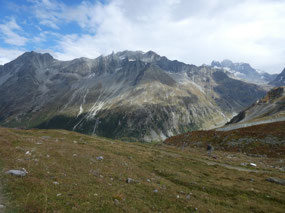
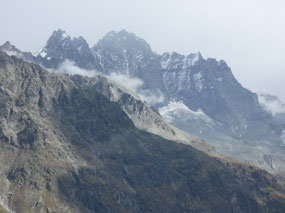
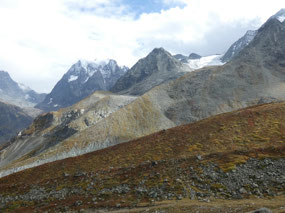
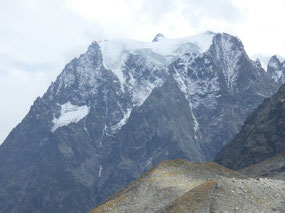
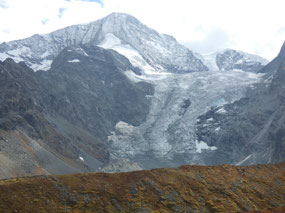
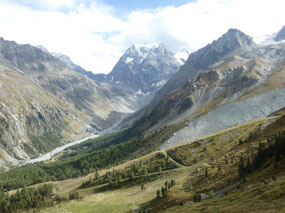
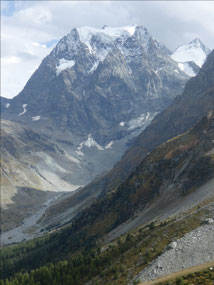
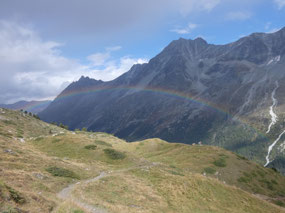
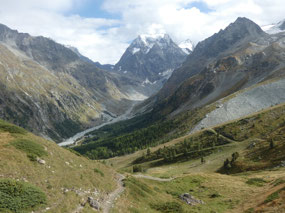
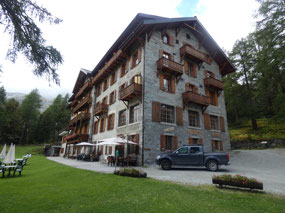
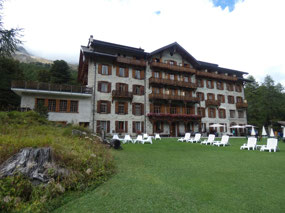
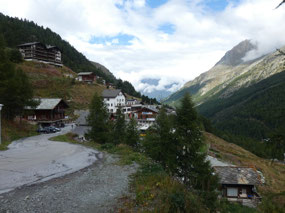
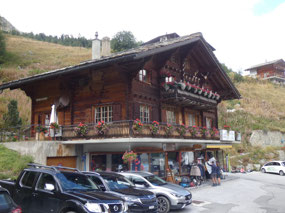
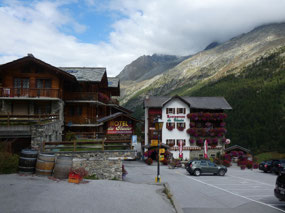
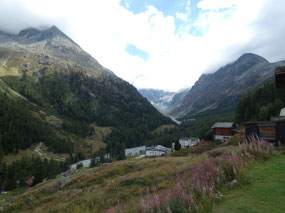
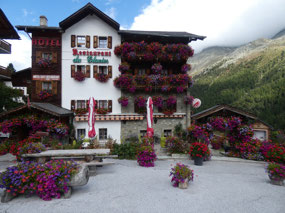
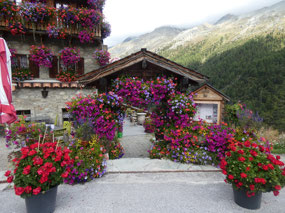
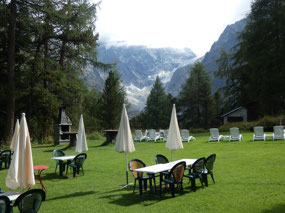
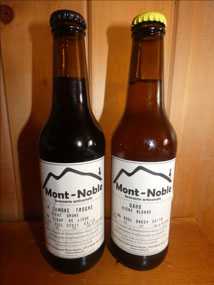
2025-05-23